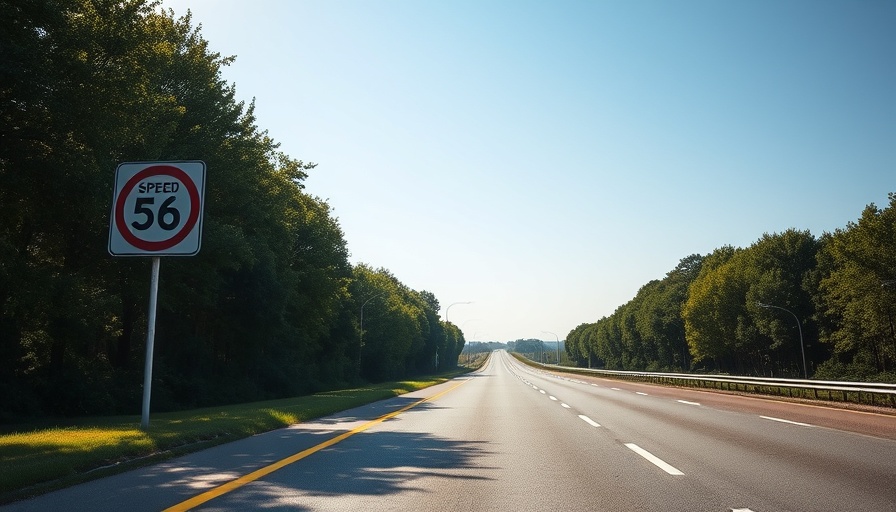
Virginia Blazes a Trail with Speed Limiters for Repeat Offenders
As speed-related fatalities continue to rise, Virginia is stepping forward with a groundbreaking proposal that could forever change the relationship between cars and speed in the United States. The state is contemplating a law that would require speed limiters on the vehicles of offenders who repeatedly break existing traffic laws. This makes Virginia the first state to enforce such measures, with an eye toward curbing reckless driving and enhancing road safety.
The state's current traffic regulations are already considered some of the strictest in the nation. With penalties like jail time for exceeding the speed limit by just 20 mph, Virginia has taken a hard stance on reckless driving. Now, the introduction of speed limiters aims to reinforce this commitment, signaling that speeders will face consequences on a new level.
Understanding Intelligent Speed Limiters
Intelligent Speed Limiters (ISLs) utilize advanced GPS technology to ensure drivers don't exceed speed limits. As vehicles approach a designated area with a posted speed limit, the system provides audible alerts or can limit the vehicle's acceleration, preventing it from exceeding the set limit.
The effectiveness of these limiters hinges on precise GPS tracking and user compliance. While many vehicles today come equipped with basic speed warnings, the new legislative approach pushes for mechanisms that could physically restrict a driver's speed, akin to Breathalyzer ignition interlocks for alcohol-related offenses. Such enforcement could reshape how drivers perceive their responsibility behind the wheel.
Lessons from Global Practices
Virginia isn't entirely alone in this initiative. The European Union has already mandated similar speed-limiting technology in new vehicles, a practice that has gathered both support and skepticism. While proponents argue it improves road safety, critics worry about the implications of additional vehicle technologies monitoring driver behavior. Virginia’s legislative move could serve as a template for other states grappling with similar issues—even as past attempts, like those seen in California and Washington state, face hurdles.
The Road Ahead: Balancing Safety and Freedom
The conversation surrounding speed limiters highlights a fundamental tension in transportation policy: the balance between individual freedom and collective safety. Critics of speed limiters may view this as an infringement on personal liberties, arguing that drivers should be trusted to make responsible decisions.
However, the increasing incidence of speed-related fatalities raises a chilling question: At what point does personal freedom yield to the need for broader road safety? As law enforcement and communities push for measures that deter reckless driving, we must engage in thoughtful dialogue that considers all perspectives.
What This Could Mean for Future Legislation
The introduction of speed limiters in Virginia could pave the way for similar laws in other states, potentially changing how we view speed enforcement across the country. Such a move would reflect a growing awareness of the dangers posed by excessive speed and a commitment to implementing data-driven solutions.
As the nation keeps its eyes on Virginia’s legislative developments, it may lead to further innovations in road safety efforts. Policymakers, law enforcement, and the automotive industry will need to collaborate, exploring technologies and practices that ensure the roads are safer for everyone.
Your Role in the Conversation
As this legislative conversation unfolds, it’s crucial to engage with your local representatives and share your views on the proposed speed limiters. Whether you support or challenge the introduction of such laws, advocating for safe road practices is essential. By participating in public discourse, you can play an active role in shaping policies that influence our transportation landscape.
 Add Row
Add Row  Add
Add 

 Add Row
Add Row  Add Element
Add Element 




Write A Comment